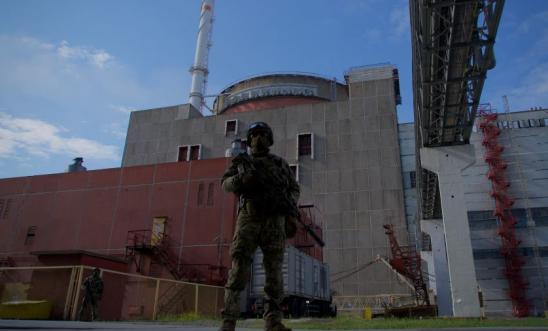
Press releases
UN Security Council must prioritise Russian war crimes in Ukraine

Militarisation of Zaporizhzhia nuclear plant is part of broader Russian strategy to threaten Ukrainian civilians
A UN Security Council session taking place today must urgently prioritise civilian protection and accountability for the litany of war crimes committed by Russian forces and call for an end to Russia’s aggression against Ukraine, said Amnesty International.
Russia requested the Security Council session to focus on growing concerns over the militarisation of a nuclear plant in Zaporizhzhia in southern Ukraine. The UN Secretary-General has warned that any damage to that or other nuclear plants could result in “catastrophic” consequences in the immediate vicinity and far beyond.
Agnès Callamard, Amnesty International’s Secretary General, said:
“The allegations we are receiving directly from Enerhodar, the town adjacent to the nuclear plant, speak volumes about the terrible impact Russia’s militarisation of the plant and surrounding areas is having on civilians.
“Amnesty International is currently investigating these worrying reports and urges the Security Council to do the same.
“The Council must also include accountability for the wide range of egregious Russian violations in the conflict to date.
“The imminent danger posed by the militarisation of the Zaporizhzhia nuclear plant is and should be the key issue for the Security Council.
“It would appear that this militarisation is part of a broader strategy by Russian forces to threaten civilians and put millions of people at great risk.
“We should also keep our attention on Russia’s abominable conduct, and the fact that during its six months of aggression against Ukraine its forces have endangered and killed many civilians.
“The UN Security Council’s unequivocal priority - with regard not just to Zaporizhzhia but across the entire conflict - must be to ensure civilians are protected.
“We should not allow the Russian authorities to avoid accountability.”
Since the invasion, Amnesty has documented and reported on numerous violations by Russian forces, including indiscriminate attacks, use of banned cluster munitions, and extrajudicial executions. Many amount to war crimes, which the Security Council must condemn and pave the way for those responsible to be brought to justice.
Since Russia’s invasion of Ukraine in February, Amnesty has spent months on the ground documenting Russian violations and war crimes. The organisation has published more than a dozen press releases, briefings and reports condemning these acts and calling for accountability. Amnesty has also urged Ukrainian forces to take additional steps to protect civilians. As in all armed conflicts, Amnesty calls on all parties to prioritise civilian protection and adhere to international humanitarian law. More of Amnesty’s work on the conflict can be found here.